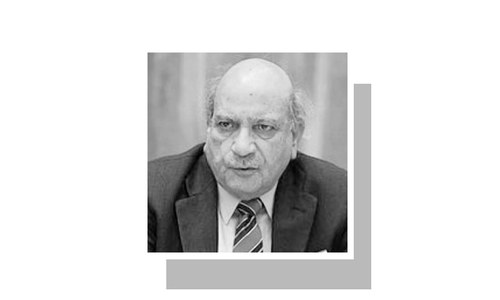If the Council of Islamic Ideology’s regular anti-women pronouncements were turned into satirical theatre imagine the shock value, given the body’s peculiar fixation with all things women.
The latest example focuses on the CII’s 75-page women protection ‘bill’. Clearly in response to the Punjab Women Protection bill (rejected as ‘un-Islamic’ by the CII), the council, under its chairman Maulana Mohammad Khan Sheerani, has suggested that a husband be allowed to ‘lightly’ beat his wife ‘if needed’, among other such clauses.
Surely the word ‘protection’ has been misconstrued. Another recommendation is that while women should be allowed to enter politics they should not be permitted to receive foreign officials.
Read: CII justifies ‘light beatings’ for errant wives
What is lost on the council is that Pakistan was the first Muslim country to elect a female prime minister with potential for the same in the future given the number of committed women legislators. Moreover, Pakistani women have proved themselves as the best ambassadors for their country as sportswomen, filmmakers, diplomats, pilots, scientists, doctors and entrepreneurs.
With its history of baseless attacks on women, will the CII be allowed to dictate how women are treated and how they should conduct themselves? Or will parliamentarians exert themselves to ensure that such pointless interventions are not taken seriously?
It is exactly this sort of regressive mindset that hampers the implementation of pro-women legislation that is the outcome of years of relentless campaigning by rights activists.
Among its many interventions, the CII has rejected the admittance of DNA testing as primary evidence in sexual assault cases, insisting on the testimony of four male witnesses; argued that nine-year-old girls are of marriageable age; and criticised the existing law that requires written approval from the first wife if her husband wants to marry a second time.
Further, it had a hand in thwarting the passing of the Domestic Violence (Prevention and Protection) bill in 2010 in the Senate, terming it un-Islamic because it would increase the divorce rate.
While it is true that the CII’s recommendations are not legally binding, politicians have often failed to resist the religious body’s assault — a case in point is the KP government that despite the CII’s known views on women enlisted its help in vetting the provincial domestic violence bill.
If the CII were trying to effect genuine social change, it would also take note of non-women issues and offer recommendations to end extremism and curb hate speech besides lobbying for greater protection of minorities.
In any case, in a freely elected democratic polity, should there be space for an obsolete body such as the CII? Parliament is already bound by the Constitution to legislate in a manner that does not deviate from Islamic principles. Perhaps that is the most pressing argument in favour of disbanding the CII.
Published in Dawn, May 28th, 2016


































